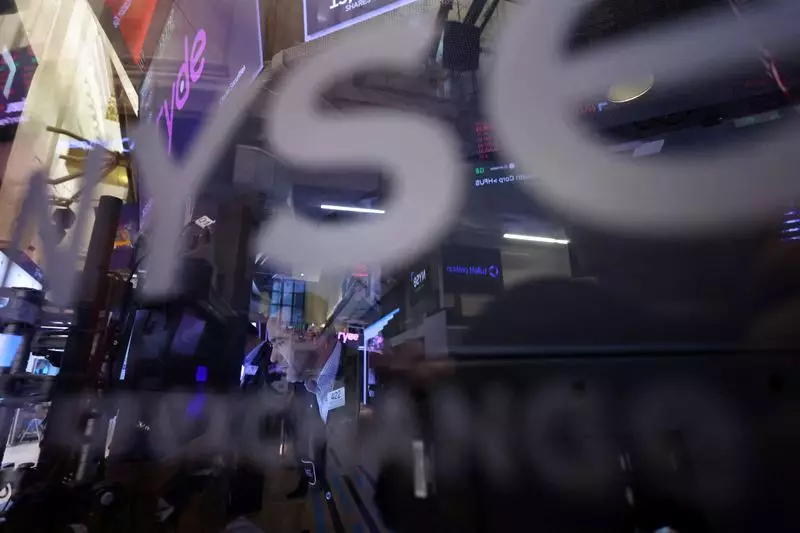The recent data revealing a fall in job openings to three-year lows has sparked concerns about the state of the economy. The number of job openings for April dropped to 8.1 million, significantly lower than economists’ estimates. This unexpected decline suggests that the labor market may be experiencing a slowdown, casting a shadow on the previously strong economic performance.
The weakening job market has also raised expectations of a Federal Reserve rate cut this year. With the Fed highlighting the importance of the labor market conditions in its decision-making process, the current data pointing towards a softer job market is seen as a signal for potential rate adjustments. As a result, the probability of a rate cut in September has increased to 55%, up from 44.9% the previous week.
In response to these developments, the U.S. stock market experienced some fluctuations. The Dow Jones Industrial Average rose by 203 points, while the S&P 500 and NASDAQ Composite also saw gains. The increased likelihood of a rate cut by the Federal Reserve has influenced investor sentiment and contributed to the market movements.
Some specific companies have also made headlines recently. Intel Corporation unveiled a new range of artificial intelligence chips, aiming to enhance its position in the market relative to competitors like Nvidia and AMD. However, concerns remain about Intel’s ability to compete effectively in the AI space without further advancements.
Tesla, on the other hand, saw its stock rise slightly despite a decrease in sales of China-made electric vehicles. Guggenheim analysts expressed bearish sentiments towards Tesla, projecting a potential decline in share price due to worries about sales figures. Meanwhile, GameStop stock experienced volatility following a rally linked to stock influencer Keith Gill’s holdings.
The energy sector faced additional pressure due to falling oil prices following decisions made by OPEC+. The organization agreed to extend most of their oil output cuts but allowed for gradual unwinding of voluntary cuts by certain members. This development contributed to declines in stocks of companies like Halliburton, Baker Hughes, and Exxon Mobil.
The recent trends in job openings, coupled with the potential for a Federal Reserve rate cut and company-specific updates, have generated shifts in the U.S. stock market. Investors are closely monitoring economic indicators and corporate performances to navigate the evolving landscape. As uncertainties persist, market participants will need to remain vigilant and adaptable to respond effectively to changing conditions.

